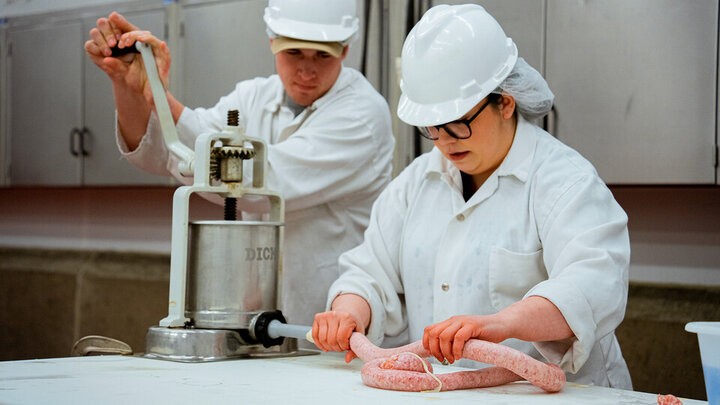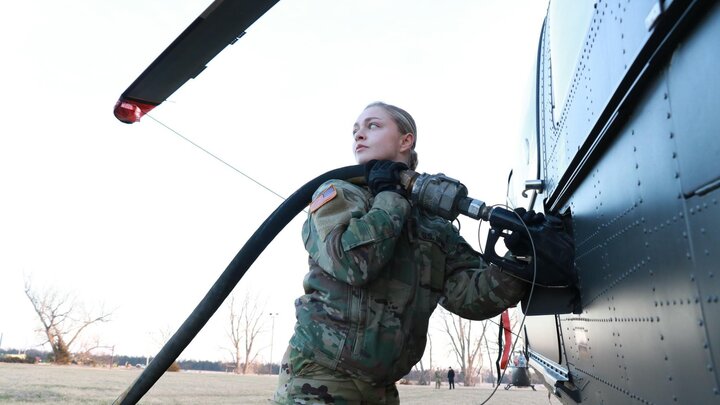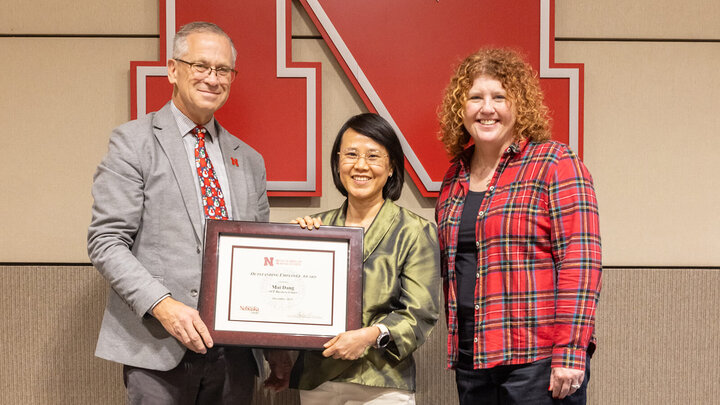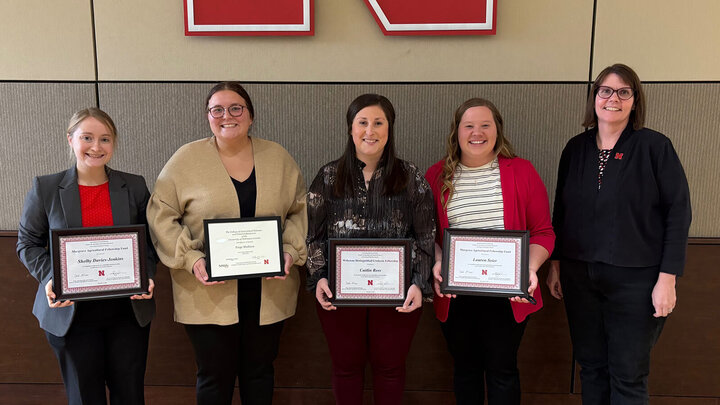The Nebraska College of Technical Agriculture has received a $644,489 grant from the U.S. Department of Agriculture to provide a targeted curriculum that trains potential and current employees for the Nebraska meat processing industry. NCTA is partnering with the University of Nebraska–Lincoln’s Department of Animal Science and consulting with private industry to develop the curriculum.
The project will involve training at NCTA’s meat laboratory and the university’s Loeffel Meat Laboratory. After completing the training, participants will receive credentialing through digital badges or other certification recognized by the Nebraska Association of Meat Processors. The curriculum also is meant to help participants understand the breadth of career options in the meat processing industry and to help current employees enhance their skills.
Training materials will be available in both English and Spanish. The research was supported by the USDA’s National Institute of Food and Agriculture and the Agriculture and Food Research Initiative’s Competitive Grants Program Education and Workforce Development Program.
The federal grant will fund development of the project and provide stipends for trainees to cover their associated expenses.
“A well-developed program will not only increase the skill set of individuals coming with little background, but we believe it will also have a profound improvement in retention, worker satisfaction and safety,” said Larry Gossen, dean of NCTA.
NCTA and the Department of Animal Science at Nebraska make for a constructive partnership, said Gary Sullivan, associate professor of meat science at Nebraska.
“We will work with NCTA in development of the curriculum content, as well as the immersive, hands-on training of students,” Sullivan said.
Last August, NCTA hosted Husker faculty and 28 private-sector representatives for an examination of the training challenges facing the meat processing sector. The discussion highlighted a range of complications for training and retention:
- Training new line workers at the entry level takes time and diverts precious resources at plants. The challenge is especially great for small processors.
- New and potential employees vary widely in their existing knowledge of the industry and in having the necessary skills. Some have no prior knowledge.
- On-the-job training must cover a wide range of topics, from knife skills and cut types to animal handling and food safety.
- After small processors invest in training, they often find that new employees leave shortly after their hire. In some cases, the workers leave within hours, because they didn’t anticipate the challenges of working within an operational processing plant.
- Meat processing plants, regardless of size, often do not have the capacity needed for adequate training.
From those discussions, the group identified a set of priority skill needs, including meat cutting, knife handling, safety and sanitary animal handling. NCTA will develop short courses in those skills, with experiential learning components to complement the training.
“Industry emphasized that it would go a long way if potential hires had a baseline understanding of the industry and potential job paths before they started their employment, along with some preliminary training in essential skills,” said Gossen, the NCTA dean. “For plants both large and small, such a program would alleviate some of the initial burden of training and would help them better fit applicants to a position where they would be successful.”
Through this approach, Gossen said, “we anticipate it would create an attractive career option to those who may not typically look to the meat sector, as well as to those who may be seeking immediate employment in a plant but may not have prior skills and knowledge.”
The university’s meat science program “has a good partnership with the meat processing industry in the state and beyond,” Sullivan said. “We have really worked toward ensuring that we have students who are trained to meet their needs, as well as conducting research that answers and solves industry problems.”
The new USDA-funded collaboration with NCTA, UNL and private industry, he said, can go far in helping the industry address its needs for employee onboarding, training and retention.




